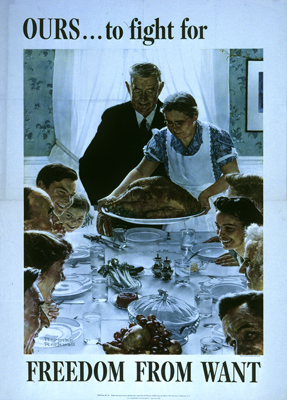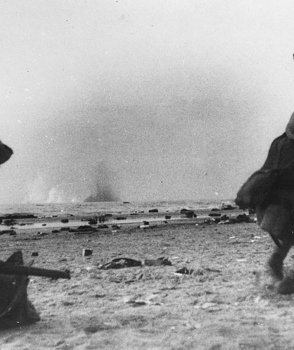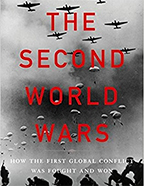Starr Sayles's Blog, page 3
January 14, 2018
Twisted Myths & Legends
Ebook—$ 3.49
Paperback—$10.59
The theme of these stories is “strong women”. Some might be real others are the stuff of ” Myths & Legends “. I also added The story ” The Falls Of Fate”.
[image error]
[image error]
January 8, 2018
The Toe In The Bag
The Toe in the Bag”Jan 7, 2018
$0.00-$5.74
Kindle Edition
By Aimee Mallory
All ebooks on Amazon!!!
Check out the other great books by Aimee Mallory
[image error] [image error] [image error] [image error] [image error]
[image error]
January 7, 2018
The Haters Club
December 20, 2017
Just A, Reminder”Twisted Myths & Legends” For Sale On Jan. 1, 2018. Pre- Orders accepted as of Dec. 23, 2018 Paperback to be out soon. Today is January 3rd and I lowered the price to $ 3.99. I hope you enjoy reading as much as I enjoyed writing.

I do Paranormal Myths, Legends, Historical Paranormal and Fantasy. I throw in a romance or two just to keep the story interesting. { Some, murder, deceit and new beginnings.} My new book “Twisted Myths & Legends” will be out Jan. 1st. It will be in ebook and paperback form. I have removed my books that were for sale in ebook only. I have done some updating and have been working on a smoother transfer from one story to another. Some of the stories that I have put in my new book will be related to each other, but will still stand on their own.
Paperback Will Be Coming Out In The Middle Of January 2018. I Will Be Giving Away Free Paperbacks, Check Back For More Information. Check Out My Author’s Site, Information Will Be There Also.
https://www.starrsaylestheauthor.net/

“The Falls of Fate”

A Short Story of a Father’s Love
He peered at her through the trees, watching and waiting to attack. He loved the hunt. It wasn’t the raping and mutilating that turned him on- that was just a bonus. He loved the suspense. He liked to make them wonder if he was there, or maybe it was just a noise. He loved the way they would pant and speed up, still not sure if anything was out there. Maybe it was just a noise or maybe it was something creeping behind them. This woman couldn’t hear him though. She had a Walkman that she was listening to.


December 12, 2017
How “America First” Turns Into “America Last”
[image error]

The American Interest

TRANSATLANTIC TRUMP
How “America First” Turns Into “America Last”JOSEF JOFFE
In an unprecedented challenge to the U.S., Germany’s foreign minister proposes “Europe first” and making nice with Putin’s Russia.
In the first year of Donald Trump, Amerikakritik, a pseudo-academic euphemism for anti-Americanism, has finally made it into the Duden, the German version of the OED. Of course, there is no such thing as anti-Americanism in polite German society; “we are just against this or that U.S. policy/president,” runs the standard disclaimer. In the official German discourse, the disparagement of America-as-such has remained coded and couched in professions of trans-Atlantic fealty.
Time-honored politesse was yesterday. This week when Chancellor Merkel’s foreign minister, the Social Democrat Sigmar Gabriel, turned a startling new page. In a speech entitled “Europe in an Uneasy World,” he first affirmed the orthodoxy: yes, the United States remains “Germany’s most important global partner,” and “we will need and sustain this partnership in the future, as well.”
But then, the tonality turned and the silk gloves of diplomacy came off, marking a watershed moment. For ages, European and German resentment has always targeted American dominance and arrogance: “Dirty Harry” as “Globocop.” This time, Gabriel pounced for the opposite reason. As of this year, he decreed, “we have been witnessing a weakened willingness or ability to project and shape [the global] order.” Is it “intentional retraction or waning power?” asked Germany’s diplomat-in-chief. It doesn’t matter—a vacuum is a vacuum, and “whenever somebody leaves the room, somebody else will enter.”
Overbearance, it seems, has yielded to underperformance. With Trumpist America pulling back, Gabriel claimed, the U.S. was shedding its “role as reliable guarantor” of the liberal order. So far, so half-correct, given that Trump is hardly withdrawing from the world, but is, in fact, reversing the retrenchment of the Obama Administration. Gabriel was right, though, in faulting Trump for dismantling America’s ancient multilateralist tradition (which, as I’ve argued before, is not such a bright idea).
In this new dispensation, Trump offers a lot more “Dirty Harry” and a lot less “Globocop.” This role reversal, according to Gabriel, should prompt Germany and Europe to reconsider their old allegiances, assert “their own interests,” and take matters into their own hands. This logic cannot be gainsaid. Others will move in if the U.S. checks out.
Alas, the cold-eyed analysis came with a baleful undertone. We are facing, the foreign minister growled, “the surrender to American policy, something we have never experienced in the past.” The message read like Gabriel’s very own Emancipation Proclamation from American slavery.
As Anna Sauerbrey, a columnist at the Berlin-based Tagesspiegel, asked: “Emancipation from what?” This German victim of American hauteur may have bowed and scraped during the Cold War, when keeping America’s strategic umbrella in place defined the supreme national interest. But after the demise of the Soviet Union, strategic dependence fell, and with it the price Berlin was willing to pay for American protection. To wit: A reunited Germany refused to join George W. Bush’s war against Saddam’s Iraq. Under Obama, it did not fly along with NATO’s bombers going after Qaddafi’s Libya. It is not cutting diplomatic ties with Pyongyang, just reducing them. Some slavery.
How to emancipate Berlin from Big Brother today, then? Not to put too fine a point on it: by cozying up to Russia, Big Brother next door. Putin may be a bad guy—expansionist and anti-Western, Gabriel intimated—but Russia is “Europe’s neighbor,” and “a very influential one, to boot.” This said, Gabriel, followed up with an old Social Democratic mantra going back to Willy Brandt’s New Ostpolitik of the 1970s: “Security and stability can be had only with, and not against, Russia.”
None of this amused most of the Western diplomats listening to Gabriel’s Berlin peroration. Why now take swipes against Chancellor Merkel, who insists on beefing up the German military and keeping the Russia sanctions in place?
Naturally, Gabriel was also addressing his comrades in the SPD. After the party’s disaster in the September elections, the Social Democrats have been moving to the left, bridling against rearmament and hankering for détente with Moscow. As the SPD mulls yet another grand coalition with Angela Merkel, Gabriel went for a “twofer”, invoking German-European nationalism as a counter to the U.S. might, while still presenting himself to his peace-minded SPD colleagues as guardian of the proper faith. Read his speech as a job application submitted to the party congress: please nominate me for four more years at the head of the Foreign Office.
Honi soit qui mal y pense, quip the French—shame on him who thinks ill of it. All foreign policy begins at home. But in terms of grand strategy, Gabriel struck yet another blow with this pitch for Moscow. Merkel, the once and future chancellor, wants to hold on to Russia sanctions. Gabriel was softly signaling acceptance of Vladimir Putin’s indirect conquest of southeast Ukraine with the help of local surrogates. He proposed loosening the sanctions should Moscow agree to a ceasefire. But ceasefires freeze the status quo, which in this case would allow Putin to consolidate his gains. So listen up, Mr. Trump, Gabriel hinted: if we are caught between a shrinking America and a resurgent Russia, we will have to make nice to the Kremlin next door.
Who is this “we” Gabriel is alluding to? The European Union, of course, and its new savior, Emmanuel Macron of France. Forget Angela, the previous empress of Europe. Unfortunately for Gabriel, this is all pie-in-the-sky thinking. Monsieur Macron will not lead the EU into an anti-American alliance. Just look at the pomp and circumstances he bestowed on Donald Trump when he welcomed him to Paris on Bastille Day. Nor will Germany, the world’s fourth-largest economy and Europe’s most populous nation at the center of the Continent, tag along behind France. Finally, for all its fabulous riches, the EU will not magically gestate into a strategic actor—and certainly not with Herr Gabriel’s butter-instead-of guns Social Democrats.
For Washington, there is a still larger point to ponder. While the U.S. in its glory days was living up to its global responsibilities, no European, not even Sigmar Gabriel, would have unloosed such a broadside against the vaunted “leader of the free world.” Think Spider-Man. As he lay dying, Uncle Ben famously told his superhero nephew: “With great power comes great responsibility.” The dictum works in reverse, too: If you shirk responsibility, your power dwindles.
That is the central problem of Trumpism. Leave aside the subtext of Amerikakritikin Gabriel’s unparalleled challenge to the U.S. and stick to the gist of his analysis. It whispers: If you want to influence, you must take care of friends and allies; don’t clobber them with “America first.” Power, Peter Parker muses in Spider-Man, is “my gift” and “my curse.” Shed the curse, and you’ll lose the gift.
Published on: December 8, 2017
Josef Joffe is co-editor of the German weekly Die Zeit, member of TAI’s Executive Committee and a fellow at Stanford’s Hoover Institution.
© The American Interest LLC 2005-2017 About Us Masthead Submissions Advertise Customer Service
We are a participant in the Amazon Services LLC Associates Program, an affiliate advertising program designed to provide a means for us to earn fees by linking to Amazon.com and affiliated sites.


December 2, 2017
AOL Grief
AOL will not work on my computer anymore. It is saying that I have other browsers open, I don’t. I have had AOL for a very long time. Time to kill the program. It used to keep all the sites that were important to me, now they are nowhere to be found. I am writing to all the people on my email list and sending them to Gmail. No More AOL.
[image error]


November 27, 2017
Take Action, A Must Read.
[image error]
About Us
Search
Sign inSign up
Take ActionRewardsFestivalImpactCommunity
Girls & WomenHealthEducationFinance & InnovationFood & HungerWater & SanitationEnvironmentCitizenship
These 5 Countries Have the Most Positive Influence on the World: Study

People Are Taking to the Streets in Paris After Report Shows Migrant Slave Auctions in Libya
CITIZENSHIP
Zara Clothes Come With Hidden Notes from Unpaid Workers
“I made this item you are going to buy, but I didn’t get paid for it.”

FILE – In this Friday, Nov. 3, 2017 file photo, people exit and a branch of fashion retailer Zara in an upscale Istanbul neighbourhood. (AP Photo/Lefteris Pitarakis, File)
The fast fashion retailer Zara has become a reliable mainstay in millennial closets thanks to its plethora of affordable, trendy clothes that can be purchased new each season without much thought.
But for shoppers who picked up some Zara items this fall, a surprise waiting inside the clothes may have forced them to pause and reconsider their purchases after all.
According to Newsweek, shoppers have found notes inside their Zara clothing this month from workers who claim they did not get paid for their work.
Take Action: Help Women Around the World Through the Products You Buy
Take Action: Sign Petition
In partnership with: WEConnect International and CHIME FOR CHANGE
“I made this item you are going to buy, but I didn’t get paid for it,” read the tags, which were found in items sold in Turkey, according to the Associated Press.
Zara’s clothes are made by outsourced manufacturing companies, and the notes reportedly came from workers at Bravo Texstil in Istanbul, which also produces clothing for Mango and Next. Workers say they are owed months’ worth of pay.
Global Citizen campaigns on the United Nations Global Goals, including Goal 8, Decent Work and Economic Growth. You can join us and take action on these goals here.
A petition on change.org was launched two months ago by the workers, who say that 155 workers were left short-changed when their boss stopped paying them and then suddenly disappeared after creditors showed up at his factory.
More than 20,000 people have signed the petition so far.
Read More: British Retailers Exploit Child Syrian Refugees in Turkish Factories to Make UK Clothes: Report
“We made these brands’ products with our own hands, earning huge profits for them,” the petition says. “We demand now that these brands give us the basic respect to compensate us for our labour. We demand no more than our basic rights! We call on the international community to support our struggle, sign and share to support our campaign!”
Zara told Refinery29 in a statement that the company was creating a “hardship fund” for the workers to cover the unpaid wages and benefits, and that it was committed to finding a “swift solution” to the dispute.
TOPICSfactory workersLow wage laborLiving WageZara
What’s Trending In Citizenship
CITIZENSHIP
These 5 Countries Have the Most Positive Influence on the World: Study
Nov. 14, 2017
Did your country make the cut? Read More
CITIZENSHIP
People Are Taking to the Streets in Paris After Report Shows Migrant Slave Auctions in Libya
Nov. 20, 2017
“We cannot be a silent witness to modern day slavery, rape, and unlawful killings.”Read More
CITIZENSHIP
Baller Kid Saves $300 for an XBox, Buys a Well for an Indian Village Instead
By Luca Powell
Dec. 9, 2016
If your name’s Josiah Shaffer, odds are you’re a Global Citizen. Read More
ABOUT
Who We Are
Impact
FAQ
Contact Us
Jobs
Privacy
Terms & Conditions
© 2012-2017 Global Poverty Project, Inc All Rights Reserved


November 25, 2017
10 Simple Ways to Make Writing Fun
Homepage

Subscribe

Jake Wilder
Working every day to encourage positive growth. Looking to challenge our current work environment and find opportunities to improve. Be a nonconformist with me.
Nov 24
10 Simple Ways to Make Writing Fun

Photo by Thought Catalog on Unsplash
I’m not a good writer. This was made clear to me at an early age.
My high school English teachers took their job very seriously. They helped us understand that not just anyone can be a writer. They taught us that to be a writer, we needed to learn to write the proper way. And there’s no room in the craft for untalented clods who aren’t willing to follow the rules.
So I learned that I wasn’t a good writer. And I stopped writing. For 17 years.
Writing Is Hard. Writing Is Not Fun.
Most people don’t know the difference between a transitive or an intransitive verb. And most don’t see an issue with starting a sentence with a conjunction or ending it with a preposition.
I didn’t learn these rules in English class. What I learned can be summed up in two points:
Writing was hard.
Writing was not fun.
I know my story isn’t singular. I wasn’t the only kid in those classes. If this is what we’re taught, it’s not surprising that the majority of people never write for fun after leaving high school.
We’re simultaneously developing mediums that help people spread ideas like never before while discouraging people’s interest in using them.
For all of us looking to better connect, better communicate, and better spread our ideas, a disinterest in writing becomes a significant impediment.
If we expect to take advantage of these opportunities, we need to get past this mindset. We need to find a way to start writing again.
Can Writing Be Easy? Can It Be Fun?
When Tim Ferriss is faced with a difficult business or relationship decision, he’s been know to ask himself the simple question,
“What would this look like if it were easy?”
It’s a question that cuts through our misconceptions about worth. It’s a question that reminds us to look for the path of least resistance, not to seek unnecessary hardship. It’s also how he opens his new trove of incites in Tribe of Mentors.
As someone who’s natural inclination is to overcomplicate the simple, this question often keeps me grounded in the logical.
What would writing look like if it were easy?
What would writing look like if it were fun?
I tried to answer these questions.
I started writing again this year. With the goal of making it fun.
I don’t see a future where I quit my job to write full-time. So I can’t give any advice on developing blogs that will let you retire by the end of the year. Let’s remove that expectation right now.
But I can give advice that helped me transform writing from something I dreaded to something I enjoy. I can talk about some of the mindsets I adopted to turn writing from a chore into an interest.
Here’s my advice on making writing less difficult (it’s still not easy). More importantly, here’s the best ten ways I’ve found to make it fun.
1. Appreciate Bad Writing
Each morning I sit down and write. And the majority of thoughts that make it from my mind to the computer end up being useless.
I’m sure there are people out there who can just sit down and write flawlessly. I’ve heard Christopher Hitchens was one such talent.
I am not. I likely never will be. Which is fine by me.
I need that mess. I need that chaos. Just as every morning my son insists on spreading toys all over the living room floor before he can start playing, I need to see the full landscape of thoughts before I can see what I’d like to write.
Our minds (or at the very least mine) are not disciplined to sit and start writing well. We need to draft and re-draft before our ideas begin to coalesce into a sensible argument. It’s from this mess of bad writing that most of us are able to develop our final product.
Yeah, I know what you’re thinking. If this is what I publish, that first draft must be a real train wreck. And yes, it is.
Because it needs to be. We need to have first drafts that don’t make sense and tangents that never circle back to the original point. It’s a critical part of the process to develop any work. And we never know how each component fits within the whole until we’ve developed the entire framework.
Pulitzer-winning writer Jennifer Egan offers similar advice for aspiring writers,
“You can only write regularly if you’re willing to write badly. You can’t write regularly and well. One should accept bad writing as a way of priming the pump, a warm-up exercise that allows you to write well.”
Celebrate that bad writing. Creativity is an iterative process. It’s much easier to fix a bad write-up than create one perfectly from scratch.
2. Notice Things
“A writer is someone who pays attention to the world — a writer is a professional observer.” — Susan Sontag
Most people don’t notice things. They’re caught in their own world or busy looking at their phones for distraction updates.
Most people don’t listen. They’re thinking about what they want to say next and waiting for that pause so they can interrupt.
Most people don’t explore both sides of an issue. They’re quick to find articles that reinforce their own ideas and push them further to the edge.
But when you’re trying to write, you start noticing. Noticing leads to ideas and ideas are necessary.
When you start noticing, you take the time to listen to other people’s thoughts. Each thought is a potential idea.
When you start noticing, you study other people’s behaviors. Each example brings more understanding. More understanding is better writing.
When you start noticing, you watch for motivations. Each motivation includes a backstory. Each backstory gives you balanced perspectives.
In a truly inspiring book on writing, Anne Lamott shows us the benefit of better observing life as it progresses around us,
“One of the gifts of being a writer is that it gives you an excuse to do things, to go places and explore. Another is that writing motivates you to look closely at life, at life as it lurches by and tramps around.”
When you start noticing, you realize that life is much more interesting. And interesting writers live interesting lives.
3. Write Something Meaningful to You
“Find a subject you care about and which you in your heart feel others should care about. It is this genuine caring, not your games with language, which will be the most compelling and seductive element in your style.” — Kurt Vonnegut
Ask someone about their passion and their eyes usually light up. Their body language and tone change almost immediately. They’re excited and engaged and those feelings are contagious.
It’s the same communication with writing. When we’re reading something that an author believes is truly meaningful, it comes through in the writing. The emotion is held in each word, emphasizing the author’s convictions.
Conversely, it’s a miserable experience to read something that lacks feeling. There’s no depth. It’s obvious the author is disinterested in the topic.
Like a salesperson who doesn’t believe in the product, an author who doesn’t believe in her ideas will always struggle to connect. If our sole motivation is money or clicks, it’s difficult to tell a story that excites and inspires.
Kurt Vonnegut, master storyteller, recognized this importance. In his 1985 essay, How to Write with Style, he emphasizes the criticality of focusing on the meaningful,
“The most damning revelation you can make about yourself is that you do not know what is interesting and what is not. Don’t you yourself like or dislike writers mainly for what they choose to show or make you think about? Did you ever admire an empty-headed writer for his or her mastery of the language? No.”
People read to gain new ideas. People read to provoke their thoughts. People read to be entertained and educated and inspired. None of these are possible with a topic the writer finds disinteresting.
Focus on what you consider meaningful. There will be others who share your interests. And you’re doing them a justice by writing on the topic.

Photo by Jakob Owens on Unsplash
4. Write Every Day.
“If you work on something a little bit every day, you end up with something that is massive.” — Kenneth Goldsmith
Writers write. Every day.
Whether identity drives behaviors or behaviors drive identity (I think the case can be made for both directions), neither is sustainable without consistent practice.
We improve by doing. By figuring out what works well and trying new things. We can’t do that from the sidelines.
Get in the game and start writing. And if you’re worried about quality, take solace in the fact that no one will read you for a while. When I started writing, it was depressing to think that few would ever read my initial posts. Now I consider that a blessing. It helped me refine my craft and improve. So when people did start reading, I had a product that was (slightly) more impressive.
Start a daily writing habit. Figure out what works for you, but commit to making it a priority. With practice comes improvement and writing is a lot more fun when you can notice the improvement.
Writer, author, and professional bar-setter Susan Sontag included the following reflection in a 1972 journal entry,
“A writer, like an athlete, must ‘train’ every day.
What did I do today to keep in ‘form’?”
What did you do today to keep in form?
5. Research. Read. Experience.
I’ve found there to be no better cure for writer’s block than research. Whenever I’m not sure of a topic or am questioning a position, becoming smarter on the subject always helps.
Research isn’t limited to reading periodicals. It’s about gaining experiences. It’s about being curious. If I’m curious about it now, likely someone else already was and someone else will be again in the future.
Research is reading other authors that we respect. It helps us see what works and what doesn’t. It gives us tools to improve our writing.
Research is seeking new ideas and viewpoints that grab our interest. It’s about understanding what moves us and what doesn’t. And about understanding why.
In Creativity, Inc., Ed Catmull emphasizes the importance of encouraging writers and designers to take research trips before developing Pixar’s movie scripts. He cites these trips as a critical element in maintaining the level of innovation that Pixar is continuously recognized,
“In any business, it’s important to do your homework, but the point I’m making goes beyond merely getting the facts straight. Research trips challenge our preconceived notions and keep clichés at bay. They fuel inspiration. They are, I believe, what keeps us creating rather than copying.”
Research helps us understand multiple perspectives. In today’s culture of immediate opinions, there’s no shortage of people willing to blindly defend their current views. The Internet is full of edge case opinions that aren’t interested in considering the other side. The alternative — telling the whole truth — is much more scarce. And hence, much more valuable.

Photo by Sticker Mule on Unsplash
6. Don’t Worry About Being Original
“Those who do not want to imitate anything, produce nothing.” — Salvador Dali
Echoing Dali’s perspective, Mark Twain famously wrote a letter to his friend Helen Keller, saying that “substantially all ideas are second hand.”
Steve Jobs recognized this as well. In a February 1996 issue of Wired, aptly titled as Steve Jobs: The Next Insanely Great Thing, he gives his succinct view on the creative process,
“Creativity is just connecting things. When you ask creative people how they did something, they feel a little guilty because they didn’t really do it, they just saw something. It seemed obvious to them after a while. That’s because they were able to connect experiences they’ve had and synthesize new things. And the reason they were able to do that was that they’ve had more experiences or they have thought more about their experiences than other people.”
Steve Jobs wasn’t a creative genius. He was someone who put systems in place to support creativity and demanded a level of quality that perfected his products to a level of genius.
Mike Posner’s YouTube video, I Took a Pill in Ibiza, has nearly one billion views. But it didn’t take off until another group remixed the song and put it out with their own spin. Mike, as someone who started out remixing others’ music, recognized this as a critical part of the creative process.
Worry about authenticity, not originality. Take ideas and connect them. Give credit where it’s due, but build off them. Use your experiences to put your own spin on things. You’re still adding value to everyone.
After all, Andy Warhol didn’t invent Campbell’s soup.
7. Tell Your Own Stories
“Good fiction is made of what is real, and reality is difficult to come by.” — Ralph Ellison
I’m as guilty as anyone of over-citing scientific studies. I read new studies and consider how the results would apply to my life. Never mind if the details have nothing to do with my situation.
It’s as though we’re all waiting for science to give us a solution that’s based on how forty undergraduates respond in a controlled environment.
Make no mistake, I love science. And the scientific process is critical to moving our understanding and theories forward.
But no experiment will ever perfectly represent our specific circumstances unless it happens in our own lives. So design your own experiments. Put yourself into interesting situations. Use that story to help the rest of us understand your ideas.
We often hear the advice to “find your own voice.” As if the vocal sound we’ve been using since birth is now lost to us. More apt advice would be to “not lose your voice.” Write as you talk. Don’t create an impostor voice for the purpose of trying to please others. Tell your stories as they’re meant to be told.
I’d much rather hear about them than read a twenty page journal article that culminates with a recommendation for further research.

Photo by Evan Clark on Unsplash
8. Become Part of the Community
One of the greatest aspects of writing is to become a part of the community. Whether it’s Medium or Quora or a broader community of writers, it creates a sense of involvement that I’ve found incredibly rewarding.
When we write, we become part of a growing community. We build connections with other writers. We’re able to leverage their strengths and find ways to help others.
Not ready to start writing yet? Read, appreciate, comment, congratulate, and suggest improvements. Just take steps to contribute. Make connections. Become part of the community.
Each subsequent step becomes a little easier.
9. Revel in the Negative
“Having your work hated by certain people is a badge of honor.“ — Austin Kleon, Show Your Work
There’s no sense telling you that negative criticism is a great tool. You’ve heard it before.
Deep down, you know it’s true. But it doesn’t take the sting out of negative feedback.
What does? More negative feedback.
When you put your work online, it will undoubtedly be subjected to the thoughts and opinions of those who disagree. Negative comments will come streaming in, complete with ridiculous suggestions and unhelpful advice.
It’s this freight train of criticism that helps toughen us against negative feedback. It conditions us to focus on the important and brush off the negative.
One of histories most celebrated poets, W. H. Auden, captures this perfectly with the following thought,
“Every writer would rather be rich than poor, but no genuine writer cares about popularity as such. He needs approval of his work by others in order to be reassured that the vision of life he believes he has had is a true vision and not a self-delusion, but he can only be reassured by those whose judgment he respects. It would only be necessary for a writer to secure universal popularity if imagination and intelligence were equally distributed among all men.”
As you slowly become a collector of negative feedback, you clearly see which judgments deserve respect. And you realize that universal popularity is not something to be admired.
10. Publish
“The only purpose of starting is to finish, and while the projects we do are never really finished, they must ship.” — Seth Godin, Linchpin: Are You Indispensable?
When I first started drafting posts this year, I spent an inordinate amount of time trying to perfect the first one. I made minor tweaks and edits, punctuated by full rewrites, trying to get it just perfect.
Looking back on that first article, I’m embarrassed of the quality. Despite many edits and hours invested, I cringe at the writing.
This is unavoidable. I couldn’t have written a better article then since I didn’t have the experience of publishing, gaining feedback, and trying to improve with each step.
Hopefully, six months from now, I’ll be embarrassed by this article and everything that’s come before it. The alternative is to not improve, stuck in a state of perpetual stasis.
When we publish our work, we give our work to the world. We open ourselves to both congratulation and criticism and practice the ever-difficult feeling of vulnerability. But more importantly, it forces us to move on.
When we publish, we’re able to move on to the next work. We move from trying to perfect one piece to building a portfolio. As bestselling author Ryan Holiday recently wrote,
“Each time you do this, it not only increases your mastery in your chosen craft, but as a result it also increases your odds of creating something brilliant and lasting. It also grows your back catalog and your platform. The key, though, is that you must do it — you must create, create, create.”
Get creating.
Have Fun.
Write. Have fun. Write some more. Keep improving. Make an impact. Enjoy it.
If you’re having fun, the quality will take care of itself. You’ll care enough to ensure it.
As literary genius and one of my favorite authors, Neil Gaiman, wisely put it,
“The main rule of writing is that if you do it with enough assurance and confidence, you’re allowed to do whatever you like. (That may be a rule for life as well as for writing. But it’s definitely true for writing.) So write your story as it needs to be written. Write it honestly, and tell it as best you can. I’m not sure that there are any other rules. Not ones that matter.”
Don’t be shy. I’d love to hear any thoughts and suggestions you may have. And if you found this helpful, I’d appreciate if you could clap it up 
November 24, 2017
Hark, the empty highways calling
Re-blogged, by Starr Sayles
[image error]
This is a very good essay’
[image error]
Hark, the empty highways calling
Photoset
December 09, 2013
75,074 notes
“There comes a point where Susan, who was the older girl, is lost to Narnia because she becomes interested in lipstick. She’s become irreligious basically because she found sex. I have a big problem with that.” – JK Rowling
Can we talk about Susan’s fabulous adventures after Narnia? The ones where she wears nylons and elegant blouses when she wants to, and short skirts and bright lipstick when she wants to, and hiking boots and tough jeans and big men’s plaid shirts when she feels like backpacking out into the mountains and remembering what it was to be lost in a world full of terrific beauty— I know her siblings say she stops talking about it, that Susan walks away from the memories of Narnia, but I don’t think she ever really forgot.
I want to read about Susan finishing out boarding school as a grown queen reigning from a teenaged girl’s body. School bullies and peer pressure from children and teachers who treat you like you’re less than sentient wouldn’t have the same impact. C’mon, Susan of the Horn, Susan who bested the DLF at archery, and rode a lion, and won wars, sitting in a school uniform with her eyebrows rising higher and higher as some old goon at the front of the room slams his fist on the lectern.
Susan living through WW2, huddling with her siblings, a young adult (again), a fighting queen and champion marksman kept from the action, until she finally storms out against screaming parents’ wishes and volunteers as a nurse on the front. She keeps a knife or two hidden under her clothes because when it comes down to it, they called her Gentle, but sometimes loving means fighting for what you care for.
She’ll apply to a women’s college on the East Coast, because she fell in love with America when her parents took her there before the war. She goes in majoring in Literature (her ability to decipher High Diction in historical texts is uncanny), but checks out every book she can on history, philosophy, political science. She sneaks into the boys’ school across town and borrows their books too. She was once responsible for a kingdom, roads and taxes and widows and crops and war. She grew from child to woman with that mantle of duty wrapped around her shoulders. Now, tossed here on this mundane land, forever forbidden from her true kingdom, Susan finds that she can give up Narnia but she cannot give up that responsibility. She looks around and thinks I could do this better.
I want Susan sneaking out to drink at pubs with the girls, her friends giggling at the boys checking them out from across the way, until Susan walks over (with her nylons, with her lipstick, with her sovereignty written out in whatever language she damn well pleases) and beats them all at pool. Susan studying for tests and bemoaning Aristotle and trading a boy with freckles all over his nose shooting lessons so that he will teach her calculus. Susan kissing boys and writing home to Lucy and kissing girls and helping smuggle birth control to the ladies in her dorm because Susan Pevensie is a queen and she understands the right of a woman to rule over her own body.
Susan losing them all to a train crash, Edmund and Peter and Lucy, Jill and Eustace, and Lucy and Lucy and Lucy, who Susan’s always felt the most responsible for. Because this is a girl who breathes responsibility, the little mother to her three siblings until a wardrobe whisked them away and she became High Queen to a whole land, ruled it for more than a decade, then came back centuries later as a legend. What it must do to you, to be a legend in the body of a young girl, to have that weight on your shoulders and have a lion tell you that you have to let it go. What it must do to you, to be left alone to decide whether to bury your family in separate ceremonies, or all at once, the same way they died, all at once and without you. What it must do to you, to stand there in black, with your nylons, and your lipstick, and feel responsible for these people who you will never be able to explain yourself to and who you can never save.
Maybe she dreams sometimes they made it back to Narnia after all. Peter is a king again. Lucy walks with Aslan and all the dryads dance. Maybe Susan dreams that she went with them— the train jerks, a bright light, a roar calling you home.
Maybe she doesn’t.
Susan grows older and grows up. Sometimes she hears Lucy’s horrified voice in her head, “Nylons? Lipstick, Susan? Who wants to grow up?” and Susan thinks, “Well you never did, Luce.” Susan finishes her degree, stays in America (England looks too much like Narnia, too much like her siblings, and too little, all at once). She starts writing for the local paper under the pseudonym Frank Tumnus, because she wants to write about politics and social policy and be listened to, because the name would have made Edmund laugh.
She writes as Susan Pevensie, too, about nylons and lipstick, how to give a winning smiles and throw parties, because she knows there is a kind of power there and she respects it. She won wars with war sometimes, in Narnia, but sometimes she stopped them before they began.
Peter had always looked disapprovingly on the care with which Susan applied her makeup back home in England, called it vanity. And even then, Susan would smile at him, say “I use what weapons I have at hand,” and not explain any more than that. The boy ruled at her side for more than a decade. He should know better.
Vain is not the proper word. This is about power. But maybe Peter wouldn’t have liked the word “ambition” any more than “vanity.”
Susan is a young woman in the 50s and 60s. Frank Tumnus has quite the following now. He’s written a few books, controversial, incendiary. Susan gets wrapped up in the civil rights movement, because of course she would. It’s not her first war. All the same, she almost misses the White Witch. Greed is a cleaner villain than senseless hate. She gets on the Freedom Rider bus, mails Mr. Tumnus articles back home whenever there’s a chance, those rare occasions they’re not locked up or immediately threatened. She is older now than she ever was in Narnia. Susan dreams about Telemarines killing fauns.
Time rolls on. Maybe she falls in love with a young activist or an old cynic. Maybe she doesn’t. Maybe Frank Tumnus, controversial in the moment, brilliant in retrospect, gets offered an honorary title from a prestigious university. She declines and publishes an editorial revealing her identity. Her paper fires her. Three others mail her job offers.
When Vietnam rolls around, she protests in the streets. Susan understands the costs of war. She has lived through not just the brutal wars of one life, but two.
Maybe she has children now. Maybe she tells them stories about a magical place and a magical lion, the stories Lucy and Edmund brought home about how if you sail long enough you reach the place where the seas fall off the edge of the world. But maybe she tells them about Cinderella instead, Sleeping Beauty, Rapunzel, except Rapunzel cuts off her own hair and uses it to climb down the tower and escape. The damsel uses what tools she has at hand.
A lion told her to walk away, and she did. He forbade her magic, he forbade her her own kingdom, so she made her own.
Susan Pevensie did not lose faith. She found it.
–


November 22, 2017
Pilgrims And Power—The Military Aspects Of Thanksgiving
[image error]

RESEARCH
PUBLICATIONS
FELLOWS
LIBRARY & ARCHIVES


Pilgrims And Power—The Military Aspects Of Thanksgiving
by Peter R. Mansoor
Tuesday, November 21, 2017

Image credit:
Poster Collection, US1664, Hoover Institution Archives.
As Americans celebrate their unique holiday of Thanksgiving this week, they might pause for a moment and reflect on the pilgrims who emigrated from Europe to the New World in search of opportunity and religious freedom. When the pilgrims established their colony at Plymouth Bay in December 1620, the odds were stacked against them. Disease wiped out half of the 100 or so colonists within three months of arrival. Native Americans lurked nearby, their intentions uncertain. In the midst of a cold New England winter, one of the first actions the remaining colonists took was to form a militia under the command of Myles Standish, an English military officer and veteran of the wars against the Spanish in the Netherlands. The Puritan dissenters had hired Standish as their military advisor before sailing to North America; he would remain loyal to Plymouth colony and in command of its militia for the remainder of his life.
Relations with the native inhabitants of the New World saved the pilgrims from starvation; they also proved a threat to the colony’s existence. As the spring thaw began, the colonists moved ashore from the Mayflower and were met by an English-speaking native who introduced them to Squanto, a member of the Patuxet tribe who had been kidnapped by an English sea captain and had subsequently made his way back to North America. Squanto acted as a translator, guide, and advisor to the colonists. He showed the pilgrims how to sow and fertilize corn, the harvest of which led to the first celebration of Thanksgiving in the fall of 1621. As importantly, he helped to broker an alliance between Plymouth colony and the Wampanoag tribal confederation, which would endure for more than 50 years.
It would not take long to put the alliance to test. In August 1621 the leadership of Massasoit, with whom the pilgrims had formed the alliance, was threatened by a rival claimant to leadership. After Squanto, who had been sent to mediate the dispute, was taken captive, Standish led a group of ten men to capture or kill Corbitant, the rival claimant to power. The punitive expedition failed to achieve its immediate objective, but the raid convinced nine leaders of the Wampanoag tribal confederation, including Corbitant, to sign a treaty of loyalty to King James. The pilgrims now had valuable military allies who would help them survive in an alien and forbidding world.
The first Thanksgiving was most likely celebrated that October as a traditional harvest festival. Despite the successful first harvest, military concerns were never far from the minds of the colonists. In November an Indian messenger arrived in Plymouth to deliver a bundle of arrows wrapped in snakeskin—a threat from the powerful Narragansett tribe. Standish acted immediately, ordering the erection of a wooden palisade around the colonist’s small village.
The wall was finished by March, now guarded by four militia companies augmented by new arrivals to the colony.
Standish’s further actions in defense of Plymouth are the subject of some debate, but he and his militiamen succeeded in defending the colony against potential enemies, enabling it to survive in a dangerous and hostile environment. So as you eat your turkey this Thanksgiving, raise a glass in honor of the first colonial soldiers, whose defense of their new North American home made possible the eventual rise of the United States of America. Salute.
COMMENTS POLICY
About the Author

PETER R. MANSOOR
Propaganda Wars: The Rise And Fall Of The ISIS Media Machine
by Peter R. Mansoor
Nov. 16, 2017
More from History
More
Articles
Articles

A Thanksgiving Toast To The Old Breed
by Victor Davis Hanson
Nov. 22, 2017
MORE FROM HOOVER

Featured Fellow
Lee Ohanian
Lee E. Ohanian is a senior fellow at the Hoover Institution and a professor of economics and director of the Ettinger Family Program in Macroeconomic Research at the University of California, Los Angeles (UCLA).

Featured Publication
The Second World Wars
In World War II was the most lethal conflict in human history. Never before had a war been fought on so many diverse landscapes and in so many different ways, from rocket attacks in London to jungle fighting in Burma to armor strikes in Libya.
SUPPORT THE HOOVER INSTITUTION
Join the Hoover Institution’s community of supporters in advancing ideas defining a freesociety.







